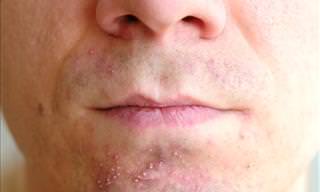You’ve probably been told about the myriad of benefits that essential oils supposedly have on your health but, truth be told, you need to exercise caution when using them, because improper use can be dangerous. Here’s how to use essential oils and reap the benefits they offer while safeguarding your health at the same time:
1. Don’t Let Nature Fool You

While it is of course true that ingredients, plants and herbs found in nature can offer you wondrous health benefits, these natural-world remedies must always be treated with utmost respect. The first thing to remember is that what works for one person may not work at all for another. Secondly, essential oils can interfere with any medications you might be taking, as well as having other side effects. Keep in mind that natural does not necessarily mean safe.
2. Avoid Oral Consumption
Unless you happen to be an essential oil expert, or are consulting with one, it’s best to use essential oils in the traditional aromatherapy sense rather than swallowing them. This is because essential oils are highly concentrated and can be toxic when consumed. While numerous retailers are advocating ingesting essential oils by adding them to water or other drinks, you need to keep in mind that these people’s medical expertise is likely to only be superficial. An example of this is those advocating the consumption of citrus oil by adding it to water. Just a few drops in a glass of water can result in the burning of the esophagus.
3. One Size Does NOT Necessarily Fit All

The consumption or use of essential oils on babies or toddlers is out of the question, and caution must also be exercised in regard to older children, due to the possibility of an adverse reaction occurring. Excessive essential oil intake can actually cause liver damage, so even adults must consult with a registered aromatherapist prior to using them. If you’re interested in using essential oils for the benefit of your health, a professional will be able to take your personal health history, medications taken or currently being taken, and body chemistry into account before making any recommendations.
4. Keep Your Meds in Mind
Something as seemingly harmless as peppermint essential oil, for instance, has a long list of drug interactions and medical contraindications. If you happen to be taking prescription drugs or have a medical condition, don’t use any essential oils without seeking professional advice first. If you’re taking multiple prescription medications, the chance of a drug interaction with the essential oil increases exponentially.
5. Never Apply Straight To Your Skin

It’s crucial to dilute any essential oil with water before using it. Direct contact with the skin can cause anything from mild contact dermatitis, all the way through to a permanent loss of skin pigmentation. Furthermore, an affected area of skin can also be sensitized permanently after just one or two uses of essential oil. Babies and toddlers can even experience breathing and nervous system problems, seizures and comas through the direct application of essential oils to their skin. Last but not least, certain kinds of essential oil, such as bergamot or lime, can cause photo-sensitivity.
6. Always Consult an Expert
When consulting an aromatherapist, be sure to research where they were trained, how much supervised practice they’ve completed, and how much class time they’ve had. In other words, do your homework before taking the advice of someone whose legitimacy as a practitioner is doubtful.
7. Become As Knowledgeable As You Can

Read aromatherapy books, watch videos and take classes to become as well-informed as possible. It is appropriate to do so because essential oils are potent medicines that are not to be taken lightly.
Cover image by Deposit Photos
Content Source: House Beautiful
 Go to BabaMail
Go to BabaMail


























































